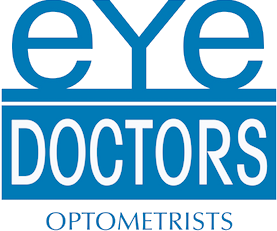
Your vision is essential to how you experience and learn about the world. That’s why it can be easy to worry if you suffer from chronic blurry or double vision. Fortunately, not all cases are emergencies. Understanding the potential causes of blurry or double vision and knowing when to seek help can make a big difference in keeping your cool and managing your eye health.
Below, our eye care team at Eye Doctors - Elgart Gordon & Associates discusses common causes of blurry or double vision. We also explain when these symptoms are an emergency and when they’re not.
Common Causes of Blurry or Double Vision
Blurry or double vision can stem from several sources, ranging from minor issues to more serious underlying conditions:
- Refractive Errors: The most common cause of blurry vision is refractive errors. These include myopia (nearsightedness), hyperopia (farsightedness), astigmatism, and presbyopia (age-related difficulty in focusing on close objects). Glasses, contact lenses, or refractive surgery typically correct these conditions.
- Dry Eyes: Insufficient tear production or poor tear quality can lead to dry eyes, which may cause intermittent blurry vision. Artificial tears or other treatments recommended by your eye care provider usually resolve dry eyes.
- Fatigue: Eye strain from prolonged computer use, reading, or driving can cause temporary blurry vision. To help alleviate this, rest your eyes and follow the 20-20-20 rule. Every 20 minutes of screen time, look at something 20 feet away for at least 20 seconds.
- Medication Side Effects: Certain medications, including antihistamines, antidepressants, and blood pressure medications, can cause dry eyes or blurry vision as side effects. If you suspect certain medicines are affecting your vision, consult your doctor about possible alternatives.
Non-Emergency Blurry Vision
In many cases, blurry or double vision may not be a cause for alarm:
- Temporary Blurriness: If you experience temporary blurry vision that clears up after blinking, it may be due to dry eyes or fatigue. A quick break and some eye drops can often remedy this.
- Refractive Issues: If you know you have a refractive error, and your vision is blurry without corrective lenses, it’s likely just a sign that you need to wear your glasses or contacts. If your prescription has changed, a routine eye exam can update it.
- Allergies or Minor Infections: Blurry vision from allergies or a mild eye infection usually clears up with the right treatment. We can prescribe antihistamines or eye drops at our eye clinic to help.
When to See an Eye Care Professional Immediately
Certain symptoms accompanying blurry or double vision should not be ignored and warrant immediate attention:
- Sudden Onset: If you experience sudden blurry or double vision, especially in one eye, it could be a sign of a serious condition, such as a retinal detachment, stroke, or optic neuritis. Seek medical help immediately.
- Accompanied by Other Symptoms: If headaches, eye pain, dizziness, or nausea accompany blurry or double vision, it could indicate a more severe issue like a migraine, concussion, or brain tumor. These symptoms require prompt evaluation by an eye care professional.
- Persistent Vision Changes: If blurry or double vision persists and doesn’t improve with rest or corrective lenses, it may indicate a more chronic condition like cataracts, glaucoma, or macular degeneration. Early detection and treatment are crucial for managing these conditions effectively.
Protect Your Vision with Regular Eye Exams
Maintaining your eye health is essential for your overall well-being. Regular eye exams are the best way to detect and address vision changes before they become more serious. If you experience sudden or persistent blurry or double vision, request an appointment with our eye care team at Eye Doctors - Elgart Gordon & Associates. Early intervention can prevent potential complications and help preserve your vision.
